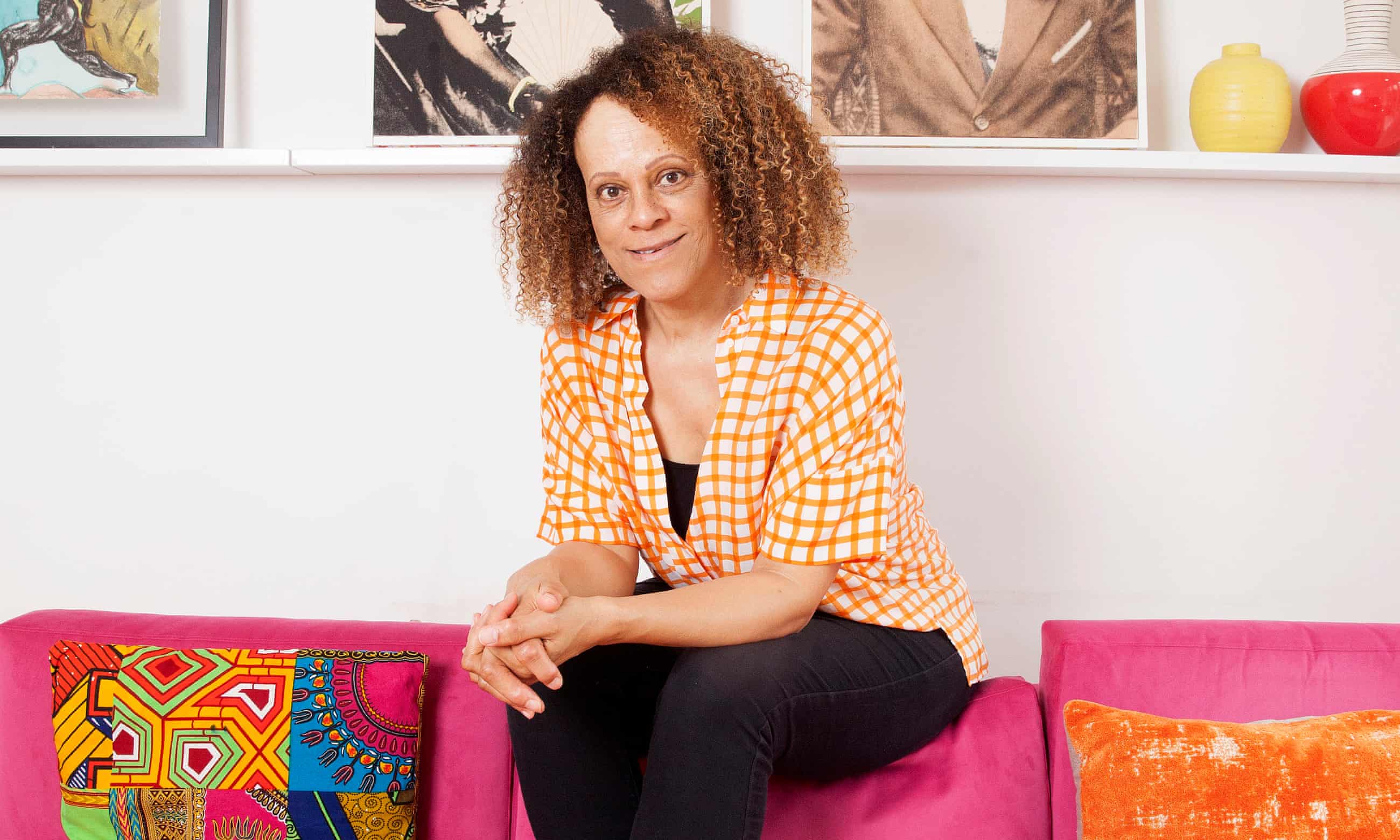Bernardine Evaristo: ‘These are unprecedented times for black female writers’Posted in Articles, Arts, Media Archive, United Kingdom, Women on 2019-12-01 01:12Z by Steven |
Bernardine Evaristo: ‘These are unprecedented times for black female writers’
The Guardian
2019-10-19
Bernardine Evaristo
 ‘These times really are extraordinary’ … Bernardine Evaristo. Photograph: Karen Robinson/The Observer |
The first black woman to win the Booker prize argues that a revolution is sweeping through British publishing. But can it lead to lasting change?
Chidera Eggerue, AKA The Slumflower, is a social media star, south-east London homegirl and feminist. She first came to prominence in 2017 when she created the hashtag #SaggyBoobsMatter on Twitter in order to promote the body-positive message that women’s breasts and bodies are fine just as they are. It’s an important idea and antithetical to a beauty industry that berates us for our imperfections. A year later Eggerue published a self-help motivational book, What a Time to Be Alone: The Slumflower’s Guide to Why You Are Already Enough, which entered the Sunday Times bestseller list the week it was published in 2018, when she was 23. In her very pink, zanily illustrated book, Eggerue, a self-styled “guru, confidante and best friend” to her readers, offers advice on self-worth and self-acceptance. An earlier booklet called Little Black Book: A Toolkit for Working Women, by Otegha Uwagba, became a bestseller in 2016, paving the way for Eggerue. This, in turn, was probably influenced by Chimamanda Ngozi Adichie’s 2014 essay We Should All Be Feminists.
These are unprecedented times for black female writers, in no small part due to the internet. It has reconfigured how we present ourselves to the world at large, as well as bringing previously marginalised social groups and writing to the fore in ways hitherto unimaginable. As a society we are beginning to recognise and take seriously the ills and pitfalls of social media, but it is still the most exciting channel of mass communication since history began…
Read the entire article here.
